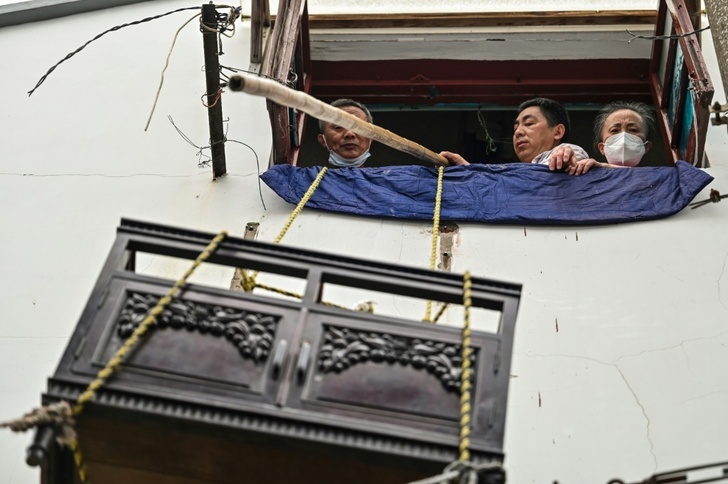Bricked-up doorways, crumbling facades and a small group of defiant locals: one of Shanghai's oldest neighbourhoods is barely clinging to life as the city presses ahead with demolition and redevelopment plans.
Laoximen or "old West Gate" -- named for its position in Shanghai's 16th-century defensive walls -- was once the city's cultural centre.
Built around the site of a Confucian temple, the mostly two- and three-storey buildings of stone and wood are an anachronism at the heart of Shanghai's gleaming commercial district.
Thousands of residents -- a mix of old Shanghai families and migrant workers drawn to the low rent -- were ordered to leave their homes at the end of 2017, though some have clung to the ageing buildings for years after the deadline.
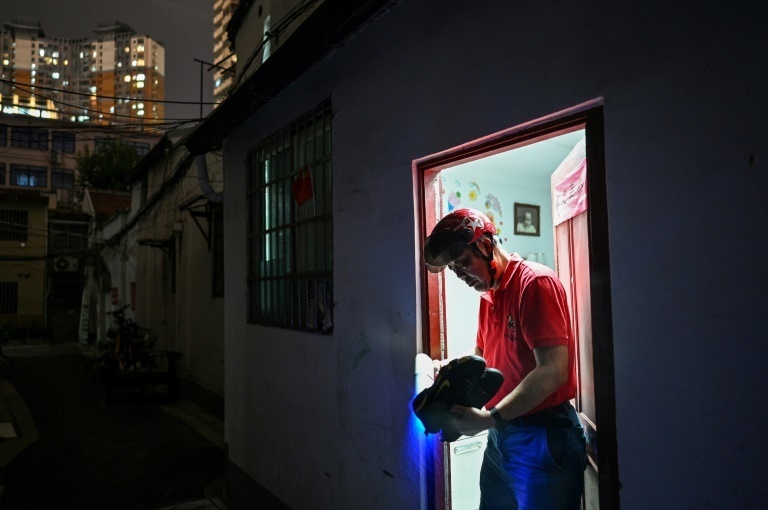
"This piece of land was bought by my grandfather," Yang, whose family has lived in the area since before the Communist Party took power in 1949, told AFP.
Most of his neighbours have agreed to leave, but Yang is holding out for what he says is compensation that would match "the value of the house".
- Compensation -
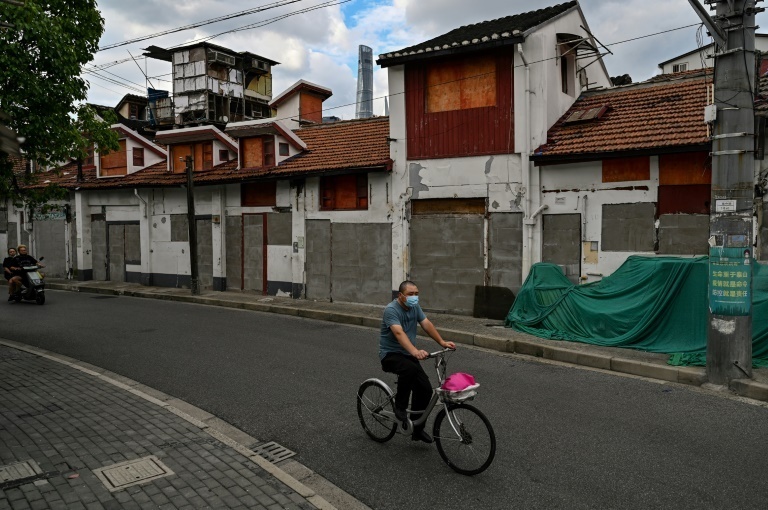
But the average pre-owned apartment in Shanghai currently costs more than 55,000 yuan per square metre, according to property company Anjuke.
The final demolition was apparently delayed by the pandemic, but diggers have resumed their work after Shanghai emerged from lockdown earlier this year.
Where locals once dined at popular restaurants, large red-and-white signs on the walls urge cooperation with redevelopment plans.
"Open, fair and just: promote the renovation of the old city," one reads.
Doors and windows have been sealed with cement blocks in the winding streets, pockmarked with piles of old chairs, boards and doors.
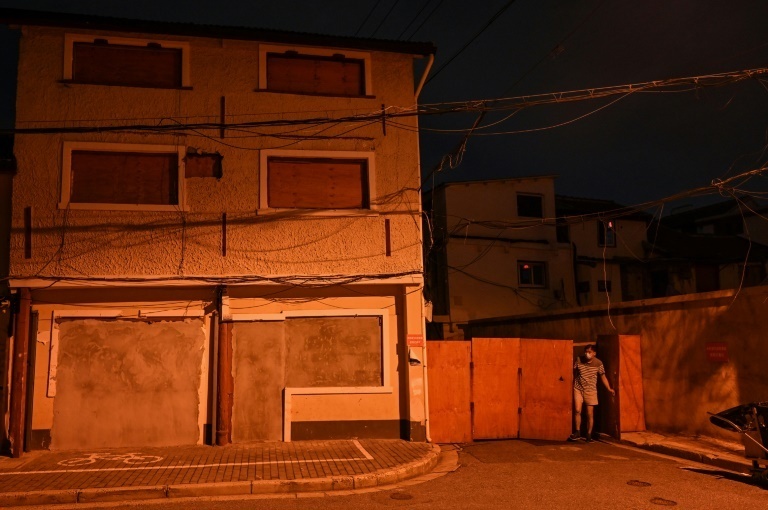
Many of the homes in the neighbourhood predated modern building standards, and lack heating or central plumbing.
Residents are typically offered new apartments or a sum of money to give up their homes, though some redevelopment projects have caused public anger and violent confrontations in parts of the country.
Replacing Laoximen's once densely packed alleyways with larger, higher-end developments could also help the city achieve its goal of capping its population at 25 million by 2035.
Authorities announced the goal in 2017 as part of a campaign to curb "big city diseases" including congestion and housing shortages.
- 'Public interest' -
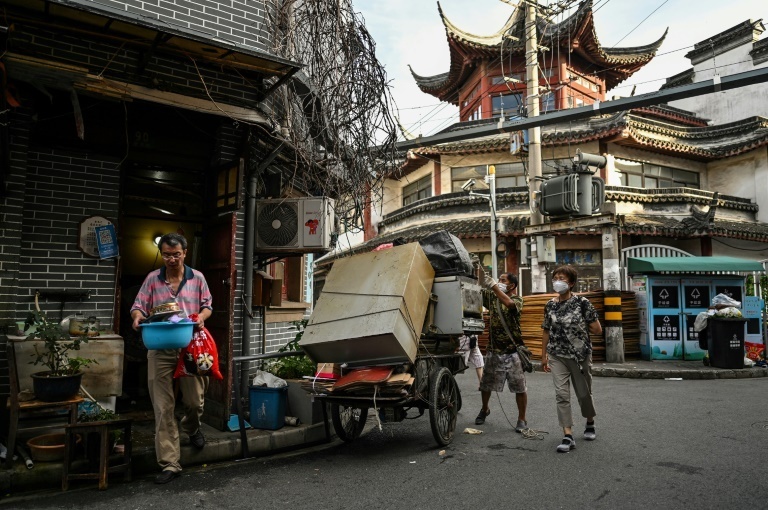
"Everyone set off fireworks and hung up rabbit-shaped lanterns during the lantern festival," he said.
Wu, who now lives two hours away in a temporary apartment in Qingpu district, occasionally returns to Laoximen to revisit his old haunts and check in with neighbours.
Most of the buildings in Laoximen were built in the 20th century in the "shikumen" style of rowhouses arranged along branching lanes.
Antique dealers have been waiting outside family homes to buy up heirlooms in recent months, as families clear out their last belongings.
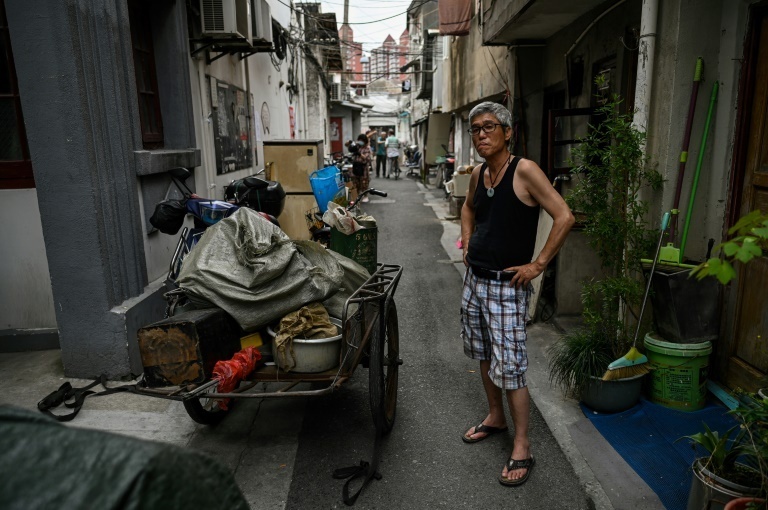
Shanghai authorities say the area will be redeveloped to meet "the needs of public interest."
Wu hopes some of the old neighborhood's charm will survive the redevelopment intact.
"They told me my home was being preserved," Wu told AFP. "If it weren't here, I wouldn't come to see it, otherwise I would be so sad."
bur-tjx/oho/rox/jta/cwl
© Agence France-Presse
Your content is great. However, if any of the content contained herein violates any rights of yours, including those of copyright, please contact us immediately by e-mail at media[@]kissrpr.com.
Source: Story.KISSPR.com

